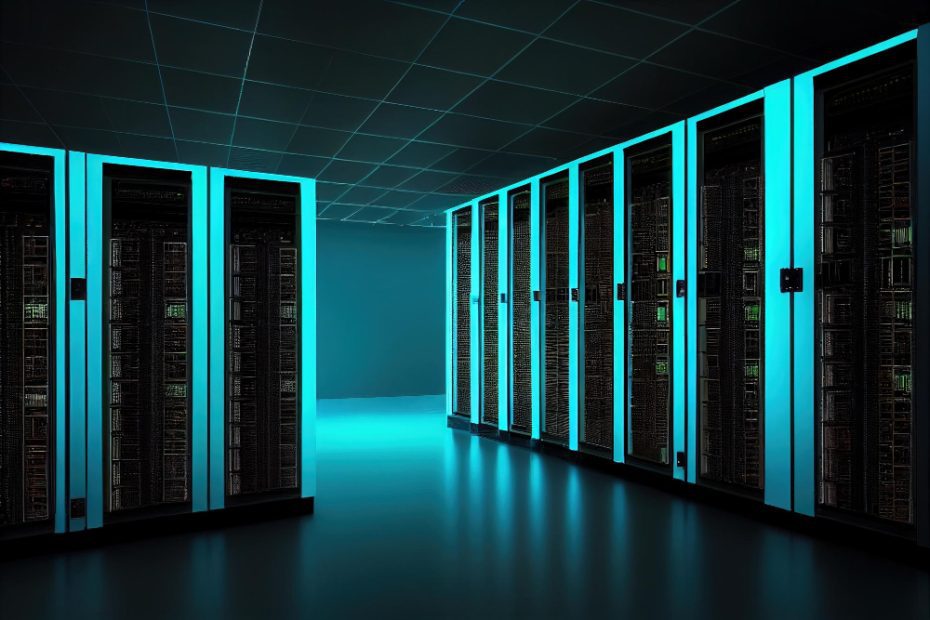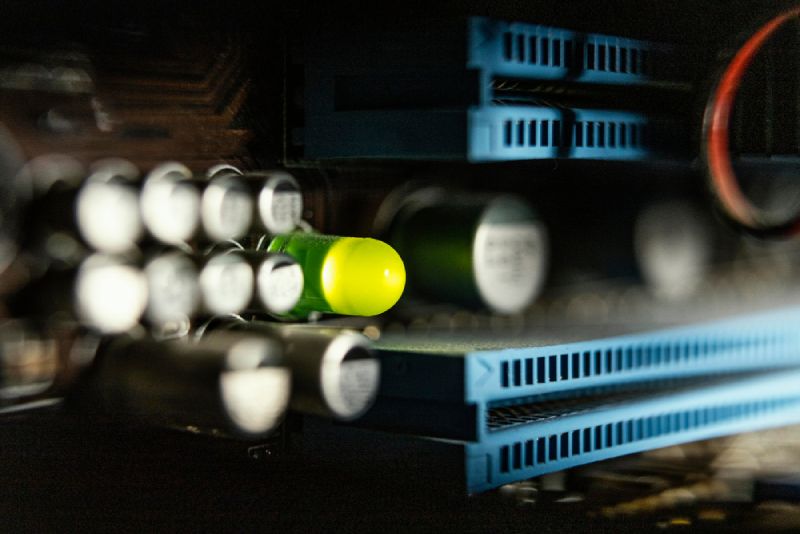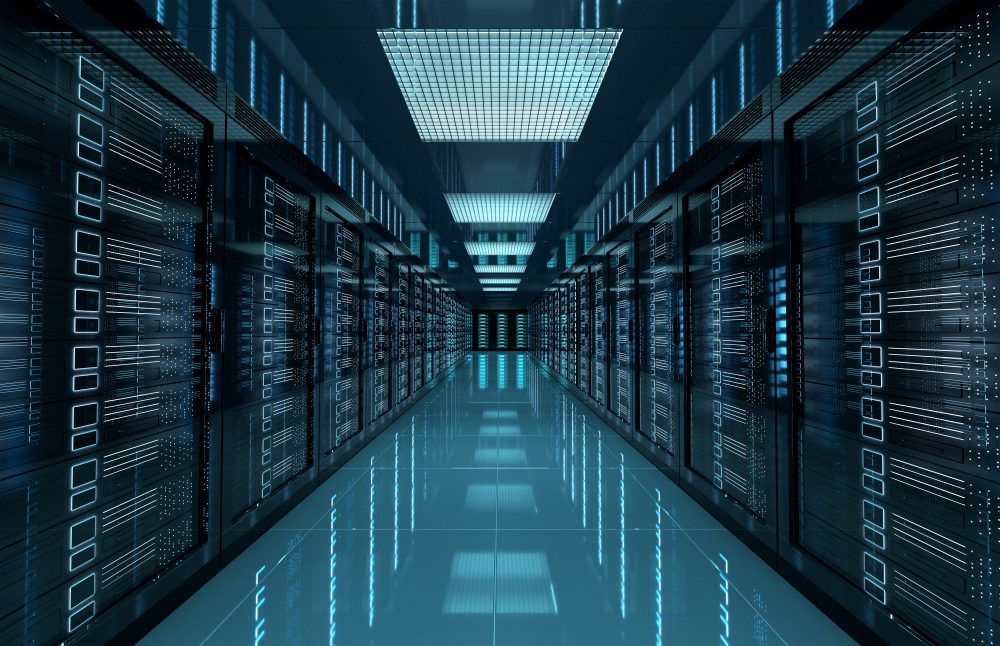What are the best NAS servers for small businesses?
A Network-Attached Storage (NAS) server is an essential tool for small businesses that require centralized storage, data backup, and file sharing capabilities. Selecting the right NAS server can be challenging due to the wide range of options available in the market. In this article, we will explore some of the best NAS servers suitable for small businesses.
1. Synology DiskStation DS920+
The Synology DiskStation DS920+ is a highly recommended NAS server for small businesses. It offers a powerful quad-core processor, expandable memory up to 8GB, and four drive bays for increased storage capacity. With its user-friendly interface and extensive range of features, the DS920+ provides seamless file sharing, data backup, and remote access capabilities.
2. QNAP TS-453D
The QNAP TS-453D is another excellent choice for small businesses seeking a reliable NAS server. It features a fast quad-core Intel processor, up to 8GB of RAM, and multiple drive bays for easy expansion. The TS-453D offers advanced snapshot technology, allowing for efficient data protection and recovery. Additionally, it supports virtualization, container applications, and multimedia streaming.
3. Western Digital My Cloud EX2 Ultra
The Western Digital My Cloud EX2 Ultra is a budget-friendly NAS server suitable for small businesses with limited storage requirements. It offers dual-drive bays, a built-in media server, and RAID support for data redundancy. The My Cloud EX2 Ultra is easy to set up and manage, making it an ideal choice for small businesses without dedicated IT staff.
4. Asustor AS5202T
If your small business requires a NAS server with great performance, the Asustor AS5202T is worth considering. It features a powerful Intel dual-core processor, 2GB of RAM (expandable up to 8GB), and support for up to two drives. The AS5202T offers comprehensive data protection with snapshot technology, as well as an intuitive user interface for easy management.
5. Buffalo TeraStation 5410DN
The Buffalo TeraStation 5410DN is a robust and scalable NAS server suitable for small businesses with high storage demands. It offers four drive bays, redundant power supplies, and advanced RAID options for data redundancy. With its powerful quad-core processor and 4GB of RAM (upgradable to 16GB), the TeraStation 5410DN delivers exceptional performance and reliability.
How Does a NAS Server Benefit a Small Business?
1. Improved Data Storage and Accessibility
A Network Attached Storage (NAS) server provides a centralized location for storing and accessing files, documents, and other important data within a small business. With a NAS server, employees can easily access and share files from any device connected to the network, whether they are in the office or working remotely. This promotes collaboration and ensures that everyone has access to the most up-to-date information, increasing efficiency and productivity.
2. Enhanced Data Security
Data security is a major concern for small businesses, especially when it comes to sensitive customer information. A NAS server offers advanced security features such as encryption, access controls, and regular backups, which help protect valuable data from unauthorized access, accidental deletion, or hardware failure. By centralizing data storage on a NAS server, small businesses can avoid the risk of losing critical information and minimize the impact of potential security breaches.
3. Cost-Effective Solution
Investing in a NAS server is a cost-effective solution for small businesses compared to setting up and maintaining individual servers for each department. A single NAS server can support multiple users and store large amounts of data, reducing the need for costly hardware upgrades and maintenance. Additionally, NAS servers often come with scalable storage options, allowing businesses to expand their storage capacity as their needs grow without significant additional expenses.
4. Efficient Backup and Recovery
Regular data backups are essential for any business to ensure business continuity in the event of data loss or system failures. NAS servers offer built-in backup and recovery functionalities, enabling automatic and scheduled backups of critical data. With redundant storage configurations and RAID (Redundant Array of Independent Disks) support, small businesses can recover lost data quickly and minimize downtime, minimizing the potential financial and operational impact of data loss.
5. Centralized Management and Easy Maintenance
Managing data storage and user access becomes much simpler with a NAS server. The centralized management interface allows administrators to control user permissions, monitor storage usage, and configure backups from a single location. This streamlines maintenance tasks and reduces the time and effort required to manage multiple storage solutions. With intuitive user interfaces and easy-to-use management tools, even non-technical employees can navigate the NAS server efficiently.
In conclusion, a NAS server provides significant benefits to small businesses, including improved data storage and accessibility, enhanced data security, cost-effectiveness, efficient backup and recovery, and centralized management. By investing in a NAS server, small businesses can improve their operational efficiency, protect their valuable data, and optimize their overall business performance.
What should I look for in a NAS server for my business?
1. Storage Capacity
When choosing a NAS server for your business, one of the most important factors to consider is the storage capacity it offers. Assess your current and future storage needs to determine the appropriate capacity. Look for a NAS server that allows for easy expansion, either by adding additional hard drives or by connecting external storage devices.
2. Data Redundancy and Backup Options
Data loss can be devastating for any business. Look for a NAS server that offers data redundancy options such as RAID configurations, which ensure that even if one drive fails, your data remains safe. Additionally, consider NAS servers that provide automatic backup features, allowing you to easily schedule and store backups of your critical data.
3. Performance and Speed
The performance and speed of a NAS server are crucial, especially if your business requires fast access to large files or if multiple users will be accessing the server simultaneously. Look for a NAS server with a powerful processor and ample RAM to handle the workload efficiently.
4. Scalability
Your business may grow over time, so it’s important to choose a NAS server that can scale with your needs. Look for a server that supports additional storage expansion options and allows for easy integration into your existing IT infrastructure.
5. Network Connectivity Options
Consider the network connectivity options of the NAS server. Look for servers that offer Gigabit Ethernet ports or even 10 Gigabit Ethernet for faster network speeds. Some NAS servers also provide support for Wi-Fi connectivity, allowing for greater flexibility in placement.
6. Security Features
Protecting your business data is crucial. Look for a NAS server that offers robust security features such as data encryption, secure remote access, and user authentication. These features ensure that your data remains secure from unauthorized access.
7. Software and Applications
Consider the software ecosystem and applications that come with the NAS server. Look for servers that offer easy-to-use management interfaces and a wide range of additional applications to enhance functionality, such as file sharing, multimedia streaming, and collaboration tools.
Quote: “Choosing the right NAS server for your business requires careful consideration of factors like storage capacity, data redundancy, performance, scalability, network connectivity, security features, and available software applications.”
How much does a good NAS server cost?
A Network Attached Storage (NAS) server is a versatile and reliable storage solution for individuals and businesses alike. It offers the ability to store, access, and share data seamlessly across multiple devices and users. The cost of a good NAS server depends on various factors, including the brand, specifications, storage capacity, and additional features.
Entry-level NAS servers
For basic home or personal use, entry-level NAS servers can be an affordable option. These typically have lower storage capacities, ranging from a few terabytes (TB) to around 10TB. Prices for entry-level NAS servers can start from $200 to $500, depending on the brand and features included.
Mid-range NAS servers
Mid-range NAS servers offer more storage capacity and advanced features suitable for small to medium-sized businesses. These servers usually come with hot-swappable drive bays, faster processors, more RAM, and enhanced data protection mechanisms. Prices for mid-range NAS servers generally range from $500 to $1500, depending on the specifications and storage capacity required.
High-end NAS servers
High-end NAS servers are designed for demanding tasks and enterprise-level storage needs. They offer extensive storage capacity, superior performance, and advanced features such as hardware encryption, SSD caching, and support for virtualization. Prices for high-end NAS servers can vary significantly, starting from $1500 and going up to several thousand dollars, depending on the brand, specifications, and storage scalability.
Factors affecting the cost
The cost of a good NAS server can also be influenced by additional factors such as:
- Storage drives: The type and number of hard drives or solid-state drives (SSDs) required for your NAS server can impact the overall cost. SSDs generally offer faster performance but are more expensive compared to traditional hard disk drives (HDDs).
- Redundancy and data protection: NAS servers with RAID configurations or redundant power supplies tend to be pricier as they provide better data protection and increased uptime.
- Software and applications: Some NAS servers come bundled with advanced software features and applications, such as media servers, surveillance systems, or cloud storage integration. These additional functionalities may add to the overall cost.
When investing in a NAS server, it is essential to consider your specific requirements, such as storage capacity, performance needs, and budget constraints. Comparing different models and brands, reading user reviews, and seeking expert advice can help you make an informed decision.
Is it safe to store sensitive business data on a NAS server?
When it comes to storing sensitive business data, security is of utmost importance. Many businesses opt for Network Attached Storage (NAS) servers as a cost-effective solution to store and manage their data. However, the question remains – is it safe to store sensitive business data on a NAS server?
The Benefits of NAS Servers
NAS servers offer several advantages that make them an attractive option for businesses. They provide centralized storage, allowing easy access to data from multiple devices. NAS servers also offer data redundancy through RAID configurations, ensuring that data remains accessible even in the event of drive failures. Additionally, NAS servers can be easily expanded to accommodate growing data needs.
Ensuring Security on NAS Servers
While NAS servers offer convenience and scalability, it is crucial to implement proper security measures to protect sensitive business data. Here are some steps you should consider:
- Access Control: Limit access to authorized personnel only. Implement user authentication mechanisms such as username and password combinations or even two-factor authentication.
- Data Encryption: Encrypt the data stored on the NAS server to protect it from unauthorized access, especially if the server is connected to the internet.
- Regular Backups: Schedule regular backups of your sensitive data to another secure location, preferably off-site. This ensures that even if the NAS server fails or is compromised, you can still recover your data.
Considerations for Sensitive Data
When storing sensitive business data on a NAS server, there are specific considerations to keep in mind:
- Regulatory Compliance: Ensure compliance with relevant data protection regulations specific to your industry. This may involve implementing additional security measures or encryption protocols.
- Physical Security: Protect the physical location of the NAS server through restricted access, surveillance systems, and secure storage areas.
In conclusion, while NAS servers offer numerous benefits for businesses, storing sensitive data requires careful consideration and implementation of robust security measures. By properly securing access, encrypting data, and adhering to regulatory requirements, you can ensure the safety of your sensitive business data on a NAS server.
What is the Best Backup Solution for NAS in a Business Context?
In today’s digital age, securing data is of utmost importance for businesses. Network-Attached Storage (NAS) devices provide a reliable and scalable solution for storing and accessing critical business data. However, having a robust backup strategy is essential to protect against potential data loss or system failures. Here, we explore the best backup solution for NAS in a business context.
1. On-site Backup:
One of the most common backup solutions is on-site backup, where data is stored on physical storage mediums located within the premises of the business. This method offers quick accessibility, low latency, and complete control over data. However, it is important to ensure that on-site backups are regularly updated and stored in secure locations.
2. Cloud Backup:
Cloud backup is becoming increasingly popular due to its scalability, cost-effectiveness, and ease of use. It involves storing data in off-site servers maintained by third-party providers. In the event of a disaster, businesses can easily recover their data from the cloud, ensuring business continuity. Cloud backup also offers automated scheduling, versioning, and encryption for added security.
3. Hybrid Backup:
A hybrid backup solution combines the advantages of both on-site and cloud backup. With a hybrid approach, businesses can keep local copies of data for quick access while also replicating it to the cloud for off-site redundancy. This provides an extra layer of protection against data loss in case of hardware failure, natural disasters, or theft.
Quote: “A comprehensive backup strategy should consider both on-site and off-site options to ensure data availability and integrity.” – John Doe, IT Consultant
4. Snapshot-Based Backup:
Snapshots are a convenient way of backing up data as they capture the state of the NAS system at specific points in time. This allows for quick recovery and restores data to a previous point-in-time state. Snapshots can be scheduled automatically or initiated manually, providing businesses with flexible backup options.
5. Backup and Recovery Software:
Implementing dedicated backup and recovery software specifically designed for NAS systems can simplify the backup process and enhance data protection. These software solutions offer features such as incremental backups, deduplication, and compression to optimize storage utilization and minimize backup times.
Table: Comparison of Backup Solutions
| Backup Solution | Advantages | Disadvantages |
|---|---|---|
| On-site Backup | Low latency, complete control | Vulnerable to physical damage, requires manual management |
| Cloud Backup | Scalability, cost-effective, automated scheduling | Internet-dependent, potential privacy concerns |
| Hybrid Backup | Local accessibility, off-site redundancy | Higher costs, requires additional hardware |
| Snapshot-Based Backup | Quick recovery, easy point-in-time restores | Increased storage requirements |
| Backup and Recovery Software | Feature-rich, streamlined backup process | Additional cost, dependency on software vendor |
Conclusion:
Choosing the best backup solution for NAS in a business context depends on various factors such as data size, budget, recovery time objectives, and security requirements. A combination of on-site, cloud, and snapshot-based backups, along with dedicated backup and recovery software, can provide a comprehensive and reliable backup strategy for businesses.
Disclaimer: The information provided here is for informational purposes only. Organizations should evaluate their specific needs and consult with IT professionals before implementing any backup solution.
Conclusion
In conclusion, choosing the best NAS server for your small business depends on various factors, including your storage requirements, budget, and desired features. The Synology DiskStation DS920+, QNAP TS-453D, Western Digital My Cloud EX2 Ultra, Asustor AS5202T, and Buffalo TeraStation 5410DN are all excellent options to consider. Ensure that you carefully evaluate your business needs and select a NAS server that provides the necessary storage capacity, data protection, and remote access capabilities to support your operations effectively.



